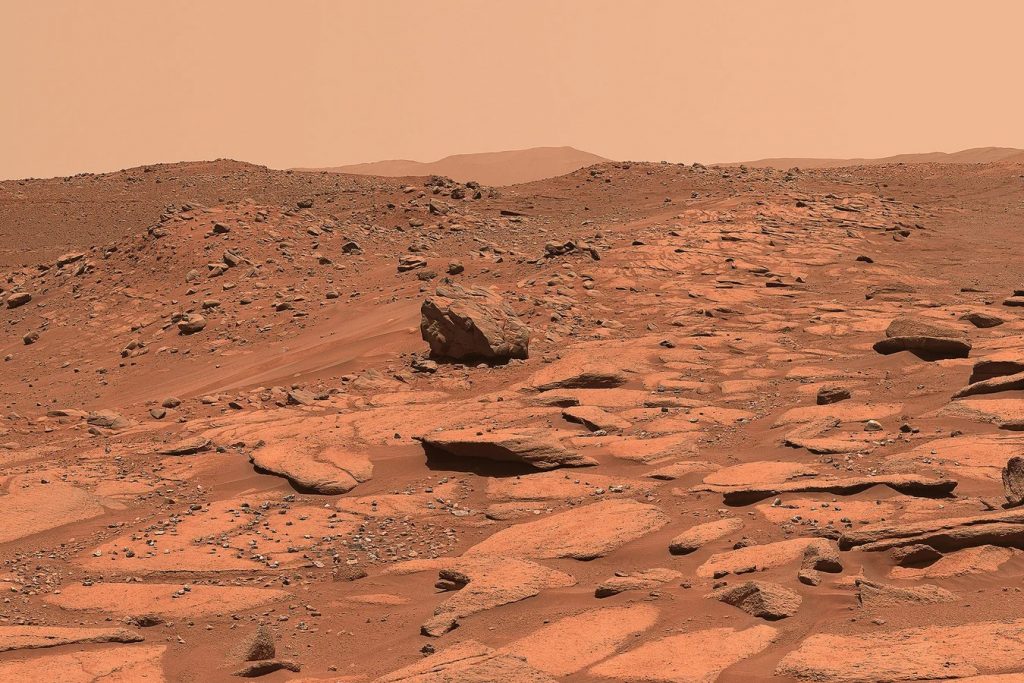Sydney: Researchers from Australia have found what may be the oldest direct evidence of hot water activity on Mars, pointing towards the possibility that the planet could have supported life in the past.
In a study published recently, a team from Curtin University in Western Australia examined a 4.45 billion-year-old zircon grain from the Martian meteorite NWA7034, known as Black Beauty, which was discovered in the Sahara Desert in 2011.
The zircon grain displayed geochemical signatures indicating the presence of water-rich fluids during the early magmatic activity on Mars. Co-author Aaron Cavosie, from Curtin’s School of Earth and Planetary Sciences, explained that their findings could enhance our understanding of ancient hydrothermal systems on Mars and its capacity to host life.
“We employed nano-scale geochemistry to uncover elemental evidence of hot water on Mars from 4.45 billion years ago,” he noted, as reported by Xinhua news agency. “Hydrothermal systems were crucial for the emergence of life on Earth, and our results imply that water, a vital component for habitable environments, was present on Mars during the formation of its early crust.”
Despite the intense meteorite impacts that reshaped Mars’ surface, the research indicates that water existed on the planet during the Pre-Noachian period, which predates roughly 4.1 billion years ago. The study also included contributions from the University of Adelaide, led by Jack Gillespie, a former research associate at Curtin who is now at the University of Lausanne in Switzerland.
